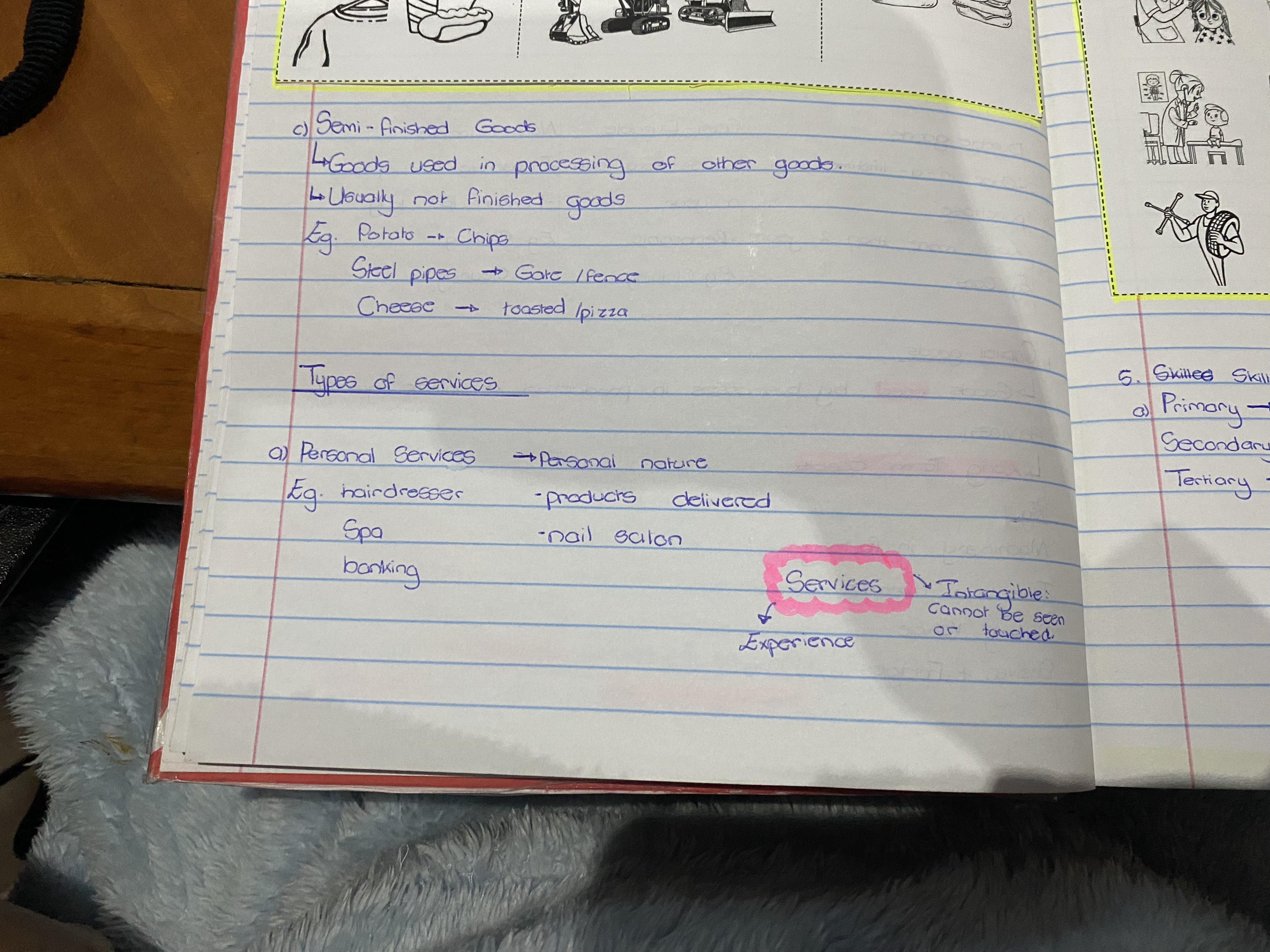Business Studies: Economic Sectors and Goods
1/19
Earn XP
Description and Tags
Flashcards covering definitions and concepts related to economic sectors and types of goods in business studies.
Name | Mastery | Learn | Test | Matching | Spaced |
|---|
No study sessions yet.
20 Terms
What are the three main economic sectors in business studies?
Primary, Secondary, and Tertiary Sectors.
What does the Primary Sector involve?
Extraction of unprocessed resources from the earth and sea, such as agriculture, mining, forestry, and fishing.
What is another name for the Primary Sector?
Extraction Sector.
What is the role of the Secondary Sector?
Manufacturing or processing resources from the primary sector into new products that can be used or consumed.
What is another term for the Secondary Sector?
Industry.
What does the Tertiary Sector focus on?
Selling and delivering final goods, distributing products from the primary and secondary sectors to consumers.
Give examples of Tertiary Sector activities.
Retailing, wholesaling, insurance, transport, storage, and customer service.
Define tangible goods.
Goods that can be seen and touched.
What are Consumer Goods?
Final (processed) goods used and bought by customers.
What are Durable Goods?
Goods that last more than 2 years and are generally replaceable, like clothing and shoes.
What are Non-Durable Goods?
Goods that do not last long, often purchased once, such as cleaning materials.
Define Capital Goods.
Goods used by a business to produce other goods/services, considered long-term assets.
Give examples of Capital Goods.
Machinery in a factory, tools, delivery vehicles, shelves, and fridges.
What is the importance of the Primary Sector in the economy?
The Primary Sector provides essential raw materials for the other sectors of the economy and supports basic needs such as food and shelter.
How does the Secondary Sector contribute to economic development?
The Secondary Sector adds value to raw materials through processing and manufacturing, which creates jobs and stimulates further economic growth.
What role does the Tertiary Sector play in consumer services?
The Tertiary Sector provides support and services that enhance the consumption of goods, facilitating transactions and improving customer experiences.
Differentiate between Consumer Goods and Capital Goods.
Consumer Goods are intended for final consumption by individuals, while Capital Goods are used by businesses to produce goods or services.
What are Services in the context of the Tertiary Sector?
Services are intangible activities or benefits that cannot be owned or stored, such as education, healthcare, and entertainment
